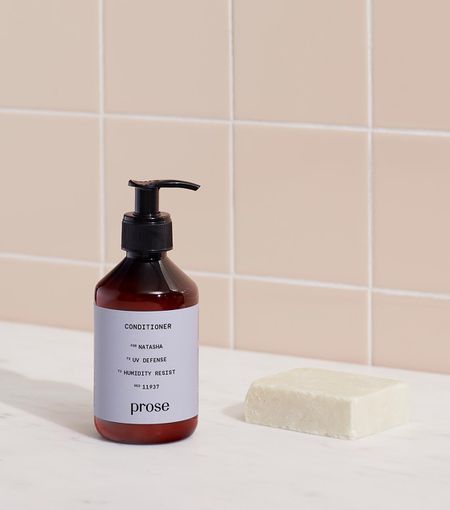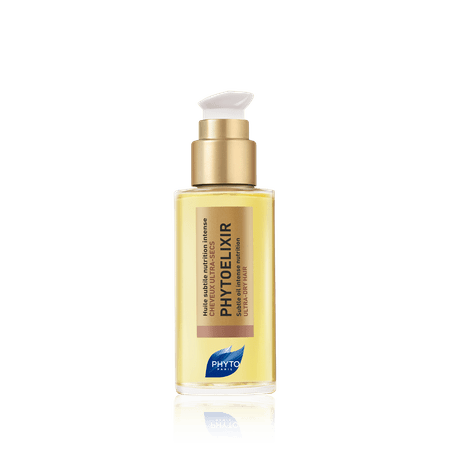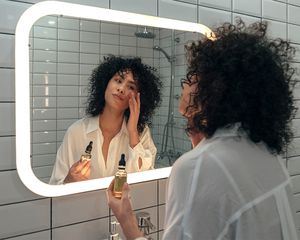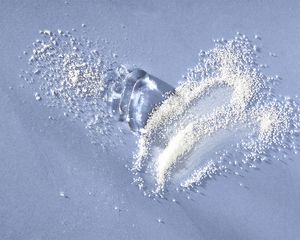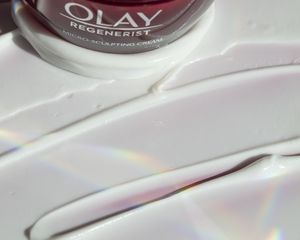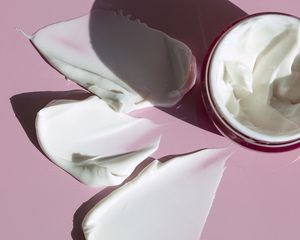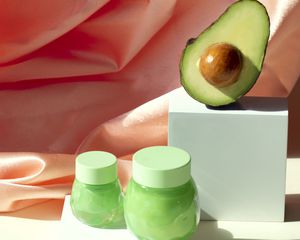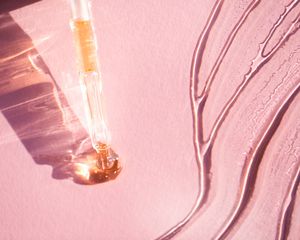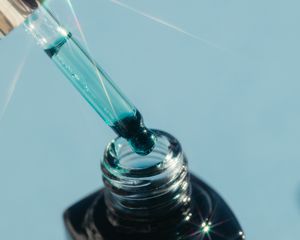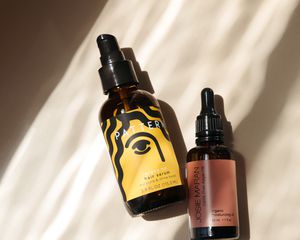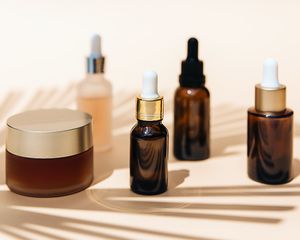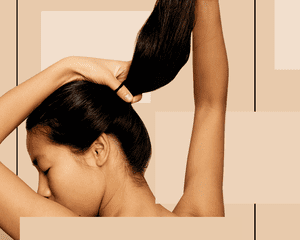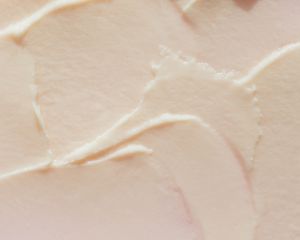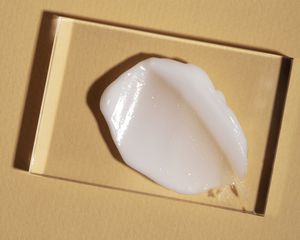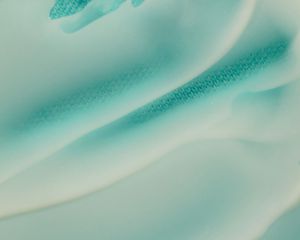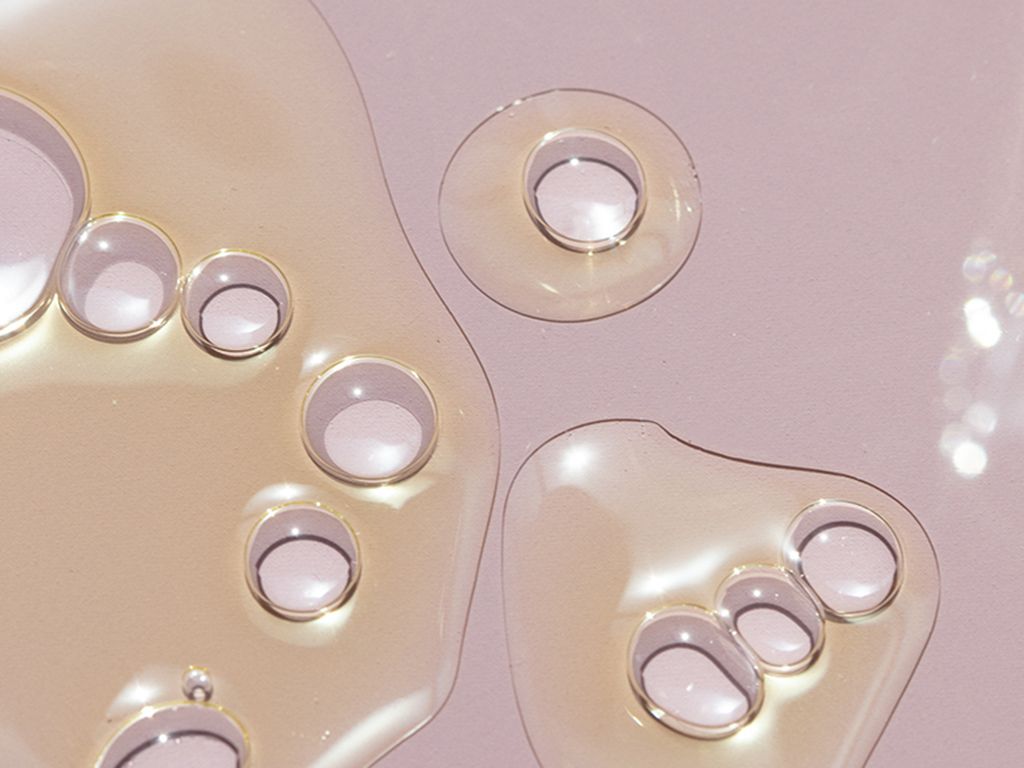
Liz DeSousa for Byrdie
Some ingredients—like hyaluronic acid, tea tree oil, and rose water—are widely known for their benefits. Others, like karanja oil, manage to slip under the radar. And that’s what we’re here to unveil today: the benefits of adding karanja oil to your beauty routine. If you’ve never heard of the ingredient, you’re not alone.
Karanja Oil
Type of ingredient: Hydrating antioxidant
Main benefits: Anti-inflammatory, acts as an astringent, and protects the scalp barrier
Who should use it: All skin types and hair types can benefit from Karanja oil.
How often can you use it: Karanja oil is not protein-based, so it can be safely used daily, says Phyto national educator Jennifer Fairchild.
Works well with: Karanja oil works well with a variety of ingredients, like softening hibiscus extract, reparative yacon extract, and hydrating coconut oil.
Don’t use with: There is no limit when pairing this ingredient with other botanical extracts, according to Fairchild.
Luckily, dermatologists and haircare experts are very familiar with the beneficial oil. Ahead, discover why you might just want to make room for it in your routine.
Meet the Expert
- Jennifer Fairchild is a Phyto national educator.
- Marie Mignon is VP of research and development for Prose.
- Michele Green, MD, is a board-certified dermatologist based in New York City.
- Geeta Yadav, MD, is a board-certified dermatologist based in Toronto. She is a member of Byrdie's Beauty & Wellness Review Board.
What Is Karanja Oil?
Karanja oil is a cold-pressed oil from the seeds of the pongam tree, which grows in India and other places in South Asia.
“It’s an extremely resilient and weather-resistant shrub that’s able to grow in both highly wet and dry conditions, and under the blaze of extreme heat and wind, so it’s often used to protect tea fields and is utilized in many reforestation programs,” Prose VP of research and development Marie Mignon says, sharing that Prose sustainably sources this beneficial oil for some of its products.
Beyond the tree that it comes from, Fairchild says that the oil itself is incredibly nourishing and protective. “It’s very rich in flavonoids, which are known for their antioxidant and UV-blocking abilities,” she says, noting that, as a result, this oil offers protection for both the skin and hair.
Benefits of Karanja Oil for Skin and Hair
- Anti-inflammatory
- Antibacterial
- Antifungal
- Soothes irritation
- Shields skin against UV damage
- Protects the scalp
- Prevents hair color fade
When it comes to the skin, board-certified dermatologist Michele Green, MD, says that karanja oil, which is also rich in fatty acids, acts as a healing ingredient. “This oil is typically used in the treatment of inflammatory skin conditions such as psoriasis or eczema,” she says, explaining that from a scalp perspective, it can help with irritation and dandruff. Karanja oil is antibacterial, anti-inflammatory, and antifungal, making it a soothing ingredient in skincare and haircare.
The reason karanja oil is beneficial for scalp care is thanks to its antibacterial and antifungal nature. “Most people will experience scalp issues in their lifetime, so karanja is beneficial, as it protects the hydrolipid film or scalp barrier, acting as an astringent,” Fairchild says.
Additionally, thanks to its weather-resistant roots and antioxidant-rich nature, Fairchild says that karanja oil can help decrease fading for natural hair colors as well as processed ones.
What’s more, board-certified dermatologist Geeta Yadav, MD, says that karanja oil also helps to promote softness and smoothness, which benefits both the skin and the hair. “For hair, karanja oil can help prevent color stripping and dryness caused by sun exposure, as well as provide nourishing hydration that helps soften and smooth the hair while adding beautiful shine,” she adds.
Side Effects of Karanja Oil
While no safety side effects exist with karanja oil, Yadav says that because it’s an oil, the pure ingredient can sometimes be too heavy for fine hair and/or oily skin. Instead, she recommends looking for products formulated with the ingredient, rather than pure karanja oil on its own.
Additionally, Yadav points out that while no known side effects are widely reported, irritation is possible. “Virtually all herbal remedies can also provoke an allergic reaction, so if you find that the oil makes your scalp more itchy or irritated, I recommend not using it going forward,” she says.
How to Use It
Speaking of using it, it’s simple. “Karanja oil has been used since ancient times in Ayurvedic medicine,” Mignon says. “A cousin to the more heard-of neem oil, it often takes its place in soap, lotions, and moisturizers.” (Not to mention appearing in haircare, according to the folks at Prose and Phyto.)
The Best Products With Karanja Oil
Ready to reap the rewards of karanja oil in your beauty routine? Below, shop some of the best skincare and haircare products formulated with the ingredient.
Prose is a custom haircare brand that formulates products based on a user's specific needs. One of its top-used ingredients in conditioners is none other than karanja oil, thanks to its reparative, UV-protecting properties.
Does your hair need a little extra TLC? This karanja-oil-infused pre-shampoo oil will help. Where karanja oil helps repair and protect hair from UV damage, as well as color and moisture stripping, camellia oil helps to impart optimal shine.
The Final Takeaway
Despite karanja oil's ample benefits, it has yet to explode within the beauty market. That said, only a couple of highly notable brands (as you may have noticed above) are currently formulating with the ingredient. Given karanja oil's benefits for both skin and hair, we bet that it's only a matter of time before the oil becomes the next big thing in the cosmetic industry. So remember, you heard it here first.


